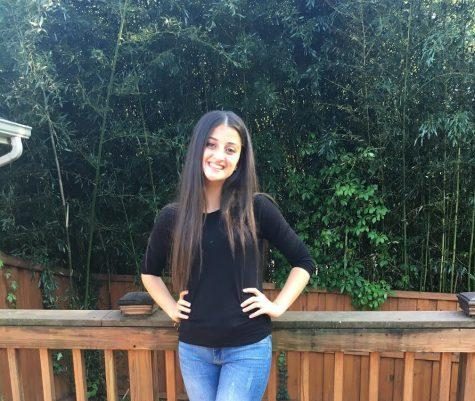How does being bilingual benefit you?
Connecting with other people and cultures internationally is one of the easiest things to do here at AHS. However, there is one barrier which prevents many people from being able to fully understand each other and learn from each other about culture and heritage.
There are some bilingual students, teachers, and staff members in AHS who use that advantage to benefit their learning environment and community.
“I think being bilingual from the perspective of an educator is beneficial to help communicate with students that might have a difficult time with the English language,” Assistant Principal James Carayiannis said. “It certainly is beneficial to be able to communicate more effectively with families and with students here at school regarding a variety of different things that happen in school not just in the classroom. Sometimes you are trying to find out about kids in terms of why they are late or why there is a problem, and that communication piece can break down if someone doesn’t speak the language.”
However, as a school with an over 50% population of Spanish-speaking students, AHS has a great opportunity to use the international environment for each student to learn about other countries and cultures.
“It’s cool when you talk to kids who speak a different language and come from a different culture,” Carayiannis said. “My family was from Greece and my father was an ESOL student when he started school so I relate to that and I recognize and value that part. Some of my best memories are sitting in my grandparents kitchen table and all my relatives are speaking Greek and I didn’t understand what they were saying. Having bilingual people gives a community that better understanding of the world and exposes people to unique cultures and lifestyles.”
Students and staff value learning other languages and make it an important part of the school. For example, during the Just World festival, the Arabic Club held a station where students learned to write their names in Arabic. These small things create a big connection between every student and different cultures.
“I think it was very important to have that activity at the festival because it encourages people to learn other languages and sets an important base for their education in that language. We had handouts with all of the Arabic letters on them and the corresponding English letters which helped people learn how to write their name correctly in Arabic,” junior, President of the Arabic Club, Michelle Akl said.
Many students forget how important it is to keep your traditional language and use that connection with your family.
However, learning the language your parents speak helps you learn about your culture and understand basic cultural ideals.
“I speak English and Tigrinya, and it helps me learn because it’s easier to learn other languages since I can connect those same grammar concepts. It’s also easier to communicate with other people who have the same culture as me but don’t speak English fluently,” sophomore Sesen Beyene said. “I learned Tigrinya because I was born and raised in Eritrea and I lived there for 6 years. My mom also still makes my family speak it at home so that we don’t lose touch with our culture and heritage. I’m also able to communicate with my family back home and my cousins here whose first language is Tigrinya. Knowing that language also connects me with the other parts of the culture like the music and food, so I have an overall better understanding of my heritage and traditions.”
In a community as diverse as AHS, there are many students who know three languages because their families are mixed or they learned the third language at school.
“I speak Arabic, Spanish, and English, and it benefits me to communicate with more people and also allows me to better understand my background,” senior Shadi Hamadeh said. “I learned English first growing up here. I went to an Arab private school until first grade which was where I learned Arabic. I learned Spanish from my trips to Bolivia in elementary school and taking Spanish classes during school from sixth grade until now. I also improve on my language skills every time I visit Palestine or Bolivia.”
The bilingual students in AHS not only keep their connection with their family, they are also given more opportunities outside of school in the competitive job world.
“Knowing multiple languages definitely enhances my understanding of my culture and other students who have the same culture as me,” senior Shadi Hamadeh said “Being bilingual or trilingual also allows for more opportunities because you are able to communicate with more people who may not know English.”
Communicating with people who aren’t fluent in English is beneficial not only to students but also to teachers and staff members who use their language experience in their workplace here at AHS.
“I think it helps to break down barriers between students and families and the school,” Principal Tim Thomas said. “Sometimes it helps for teachers to have others in the building who speak different languages especially in a school as diverse as AHS. In general I think it’s an asset to know different languages and an advantage for creating a good learning environment.”
Knowing different languages is a benefit that many students at AHS have access to, and it is just the beginning of gaining a larger understanding of the world and cultures.
About the Writer

Lina Al Taii, Entertainment Editor
Senior Lina Al Taii has been on The A- Blast staff for three years. She is currently the Entertainment Editor, and has been an International Editor and...







